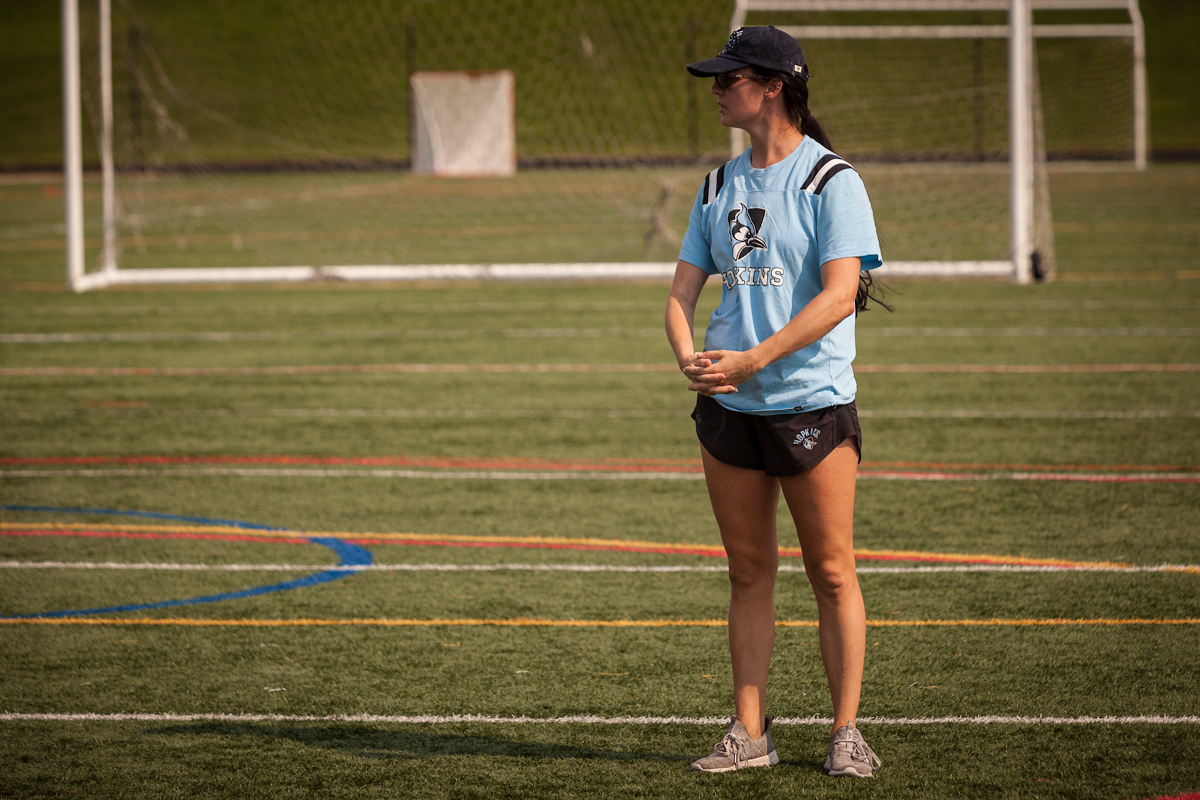
21 Jan Male Coaches Are Role Models, Too
Unpopular opinion: just because I’m a woman doesn’t make me a role model to girls.
Of course, I pride myself in being an active listener, open communicator, and motivator to young female athletes. I pride myself in being able to pick up on when my girls need a softer approach, or a safe space to express their emotions.
I pride myself in walking the walk and being an exemplar of vibrant health, physical strength, and mental empowerment.
I pride myself in owning my shortcomings, and committing to the lifetime pursuit of personal development.
I pride myself in stepping into my authenticity and speaking my truth.
I also pride myself in writing on uncomfortable topics like overcoming abusive relationships, crawling out of depression and finding your power again.
I pride myself in being a glimmer of hope for young female athletes.
I guess some have called me a “role model” or “a shining example” to young girls, and I’m tremendously appreciative of the comments. However, I don’t want to be a role model just because I’m a woman. Just like everyone else, I have to put in the work of continuous self improvement as a coach and person.
Put simply, I need to do my job.
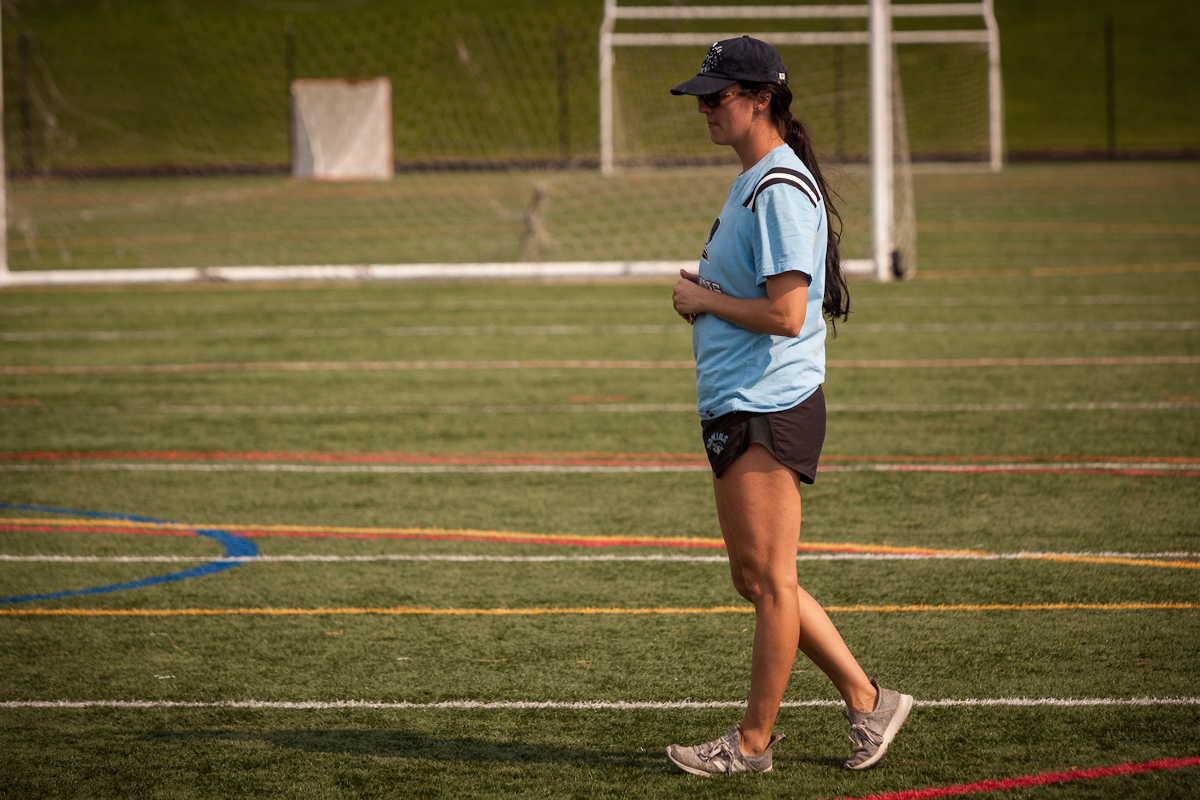
Gender aside, this comes down to being a professional who relentlessly sharpens their coaching axe.
After observing other coaches, both male and female, over the years, anyone can be a role model to young girls, and it’s not exclusive to women.
While I’ve seen many amazing female coaches who are a sparkle of light to their young female athletes, I’ve also seen abusive and demeaning ones, who are certainly not qualified to coach. Alas, they’re hired because, well, these clubs “need more women” or “role models.”
This gets dangerous because we’re putting women into these roles because they’re women, and ignoring qualifications, coaching ability, and soft skills.
It gets messier, too, when we don’t recognize the incredible male coaches out there, and we demonize the entire group of male coaches because a few guys ruined it for everyone else.
This brings me to the punch line: male coaches can be role models to girls, too.
What Is A Role Model?
Is it how someone looks? Is it their gender?
Or is it also their character? Their integrity? Their philosophy?
Expounding further, the best role models are the ones who bring out the gems in their followers, the ones who ignite others’ passions, the ones who teach skill mastery in sports and life, and the ones who inspire people to take action.
Looking back on when I was a young girl, I was lucky to experience both male and female coaches. My first coach was an Austrian soccer player, and I had him from age 8 until age 12. What he did so well was communicate to us in a way that was warm, yet stern. He had an articulate way of explaining how we needed to be disciplined, and practice on our own time to get better. He had a fierce way of pushing intensity at trainings that wasn’t berating or soul sucking. He had a genuine approach to listening to our problems, yet encouraging us to turn our energy into focus.
My best coach was a male, and he was a role model.
Don’t get me wrong, though, my female coaches were tremendous role models, too.
Laurie Schwoy, former UNC women’s soccer player, was my first female coach, but just because she was a woman didn’t mean sessions were easy. She had an explosive blend of feminine and masculine energy when she coached. Some days, she let us play and be creative. Other days, she called us out and pushed us past discomfort. Truthfully, she taught me how to step into my power and not take any crap, and for that reason, she was a role model for me to toughen up and not be soft.
I’d be remiss not to mention, she was the impetus for my college career, and ignited my competitive spirit even more to pursue my dreams of playing at Johns Hopkins University, let alone, earn a starting spot all four years.
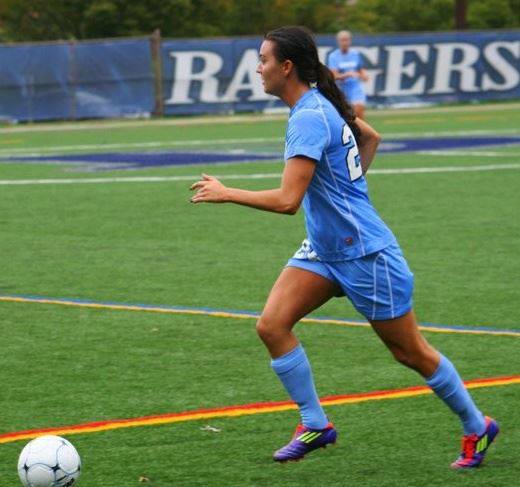
Every coach I’ve had, man or woman, I saw them as a human – a human who brought out the best in me as a player and person. We need to celebrate this. We need to celebrate someone’s ability to inspire, be a catalyst, be a facilitator for greatness.
Men Aren’t Bad
Full disclosure: I used to blame men for everything. I used to put every male coach in the same camp. I used to complain about the industry being male dominated, and played the victim as “this industry is so hard.” Mind you, I have been through my fair share of obstacles as a woman (work place harassment being one), but I had to take responsibility and set clear boundaries to solve these issues. And it worked.
Admittedly, before I took self responsibility, I would band together with other female coaches and complain and blame and screech with them “men are bad!” or “I’m sick these male coaches!” and huff and puff so loud I felt like I was saving the world.
Unfortunately, when I thought I was part of the solution, I was part of the problem, and it furthered the divide more between myself and male coaches. It felt icky having a bitter taste in my mouth toward the male coach.
Waking up to this was a stale pill to swallow, but it set me free. It was liberating to shift my mindset from “men suck” to “men rock” and “men, too, can work with girls and inspire them just as much as I can.”
And sure enough, being a female coach became more empowering, rather than defeating.
I was seeking out more male coaches who were supportive. I worked with male coach mentors who encouraged me to level up. I collaborated with them. I learned from them. I mastered my craft more. I was given more opportunities because these men had my back and I had theirs. It’s because of men I actually got more work, more skill, more confidence.
As women, we get imprisoned with the us versus men mentality, when we need to be working together, learning from one another, hearing each other, being in the same room, and having good old fashioned conversations.
It’s not fair for me to demonize all men, when in reality, many have presented me with tremendous support and opportunities to excel in my career. Oddly enough, I feel I’m at a huge advantage as a woman because of the “role model” card, and many teams have hired me for this reason. I’m grateful to have MORE opportunities.
Sure, I still have to prove myself beyond being a “role model”, but I lean into it and use it as an advantage.
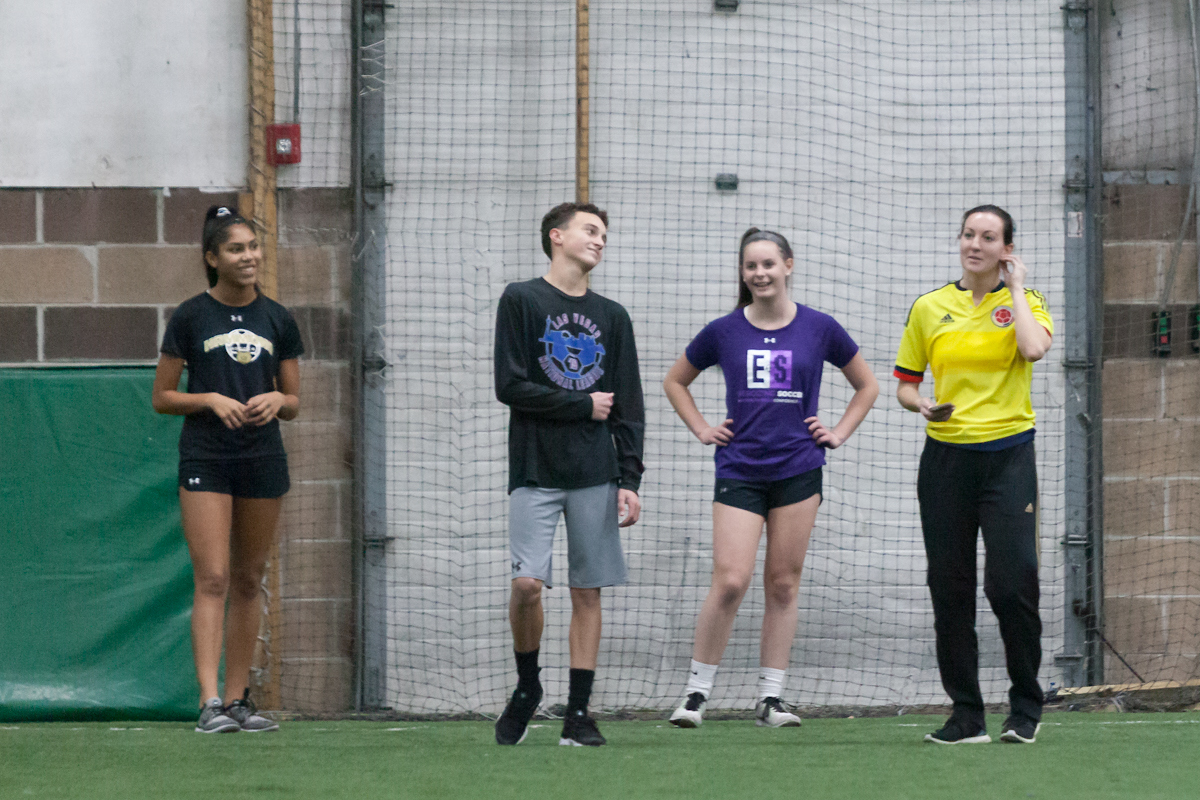
Shifting gears, I realize that just because I’m a woman doesn’t make me the “role model” expert.
There have been a myriad of male coaches who walk the walk and do magical work with their athletes, and who I have stolen nuggets from over the years to serve my girls.
Coach Dave Gleason, for example, in Boston, MA, taught me how to build connection and actively listen. Coach Colton Bryant taught me a thing or two about culture and community. Coach Aaron Velky taught me new lessons on boosting confidence.
I could go on with a rolling list of male coaches who schooled me on how to coach girls, while also recognizing my strengths, too. After all, we’re here to serve youth, and that involves collaboration…and stealing each other’s methods. ;-O
We're here to serve youth, and that involves collaboration. Share on XI believe every coach – male or female – has a nice mix of masculine and feminine energy that needs to be birthed more often. Tapping into the masculine energy involves the x’s and o’s, the tactical decision making, the technique coaching, while being in the feminine involves the soft skills like inspiring community, culture and creativity.
Sports are the ultimate combination of masculine and feminine energy – the integrative dance of tactics, technique, creative expression and spontaneity – so coaches must reflect this, too.
Sports are the ultimate combination of masculine and feminine energy - the integrative dance of tactics, technique, creative expression and spontaneity - so coaches must reflect this, too. Share on XCan we bring out our Yin and Yang energy, whether we’re male or female? We all have both within our souls.
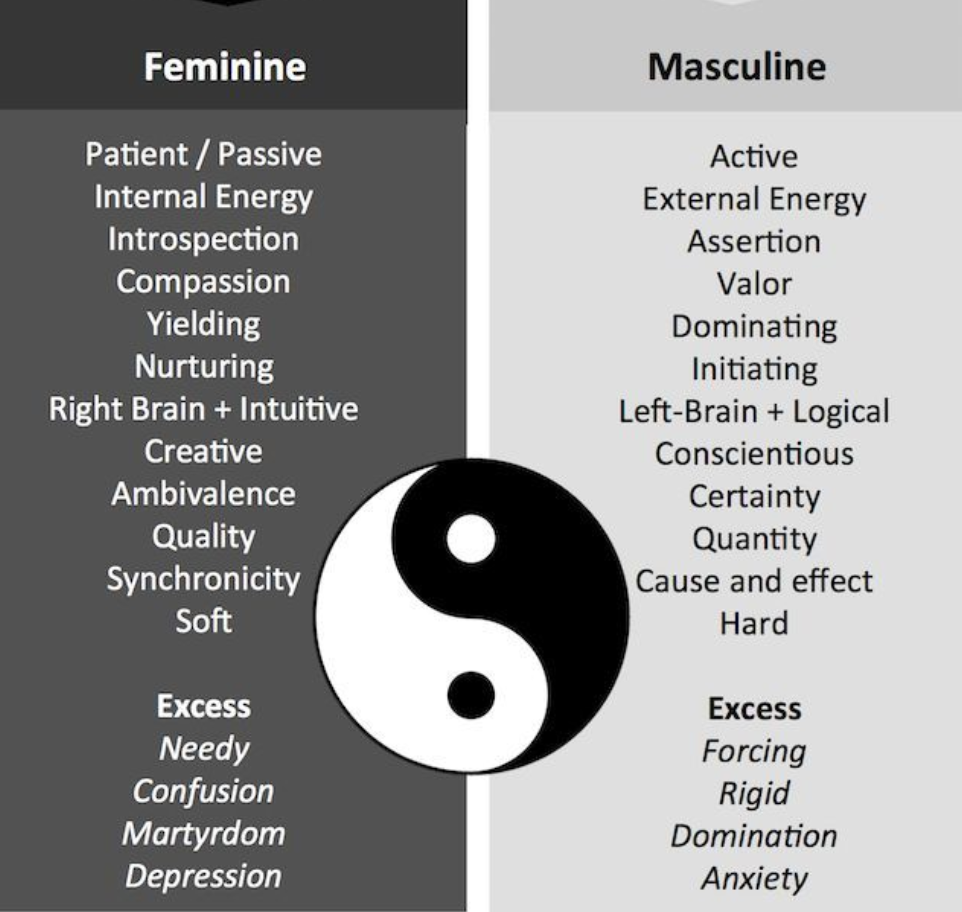
I’ll stop there with the woo-woo Buddhism talk. That’s the scope for another article.
I celebrate all coaches – male and female – who do their jobs with professionalism, class and integrity – and will share their work endlessly. I’ll share Ivi Casagrande’s work. Renee Washington’s. Krista Stoker’s. Lee Taft’s. Michael Boyle’s. Lee Boyce’s. Good work is, well, good work.
Evolving as an industry means we see everyone as human with greatness to offer. It starts with planting seeds at the individual level, then sprouting into larger communities, then erupting throughout the entire system to shift the paradigm that we are all one. Sorry to get spiritual on ya’ll. ;-O
I want all male coaches to know, you’re role models just like us, too, and we need your strength for our girls.
Get the Total Youth Female Athlete Fitness video course to learn how to teach female athletes strength technique, speed, and change of direction mechanics for injury reduction and performance, as well as learn about growth and maturation considerations, menstrual cycle, nutrition, and so much more HERE
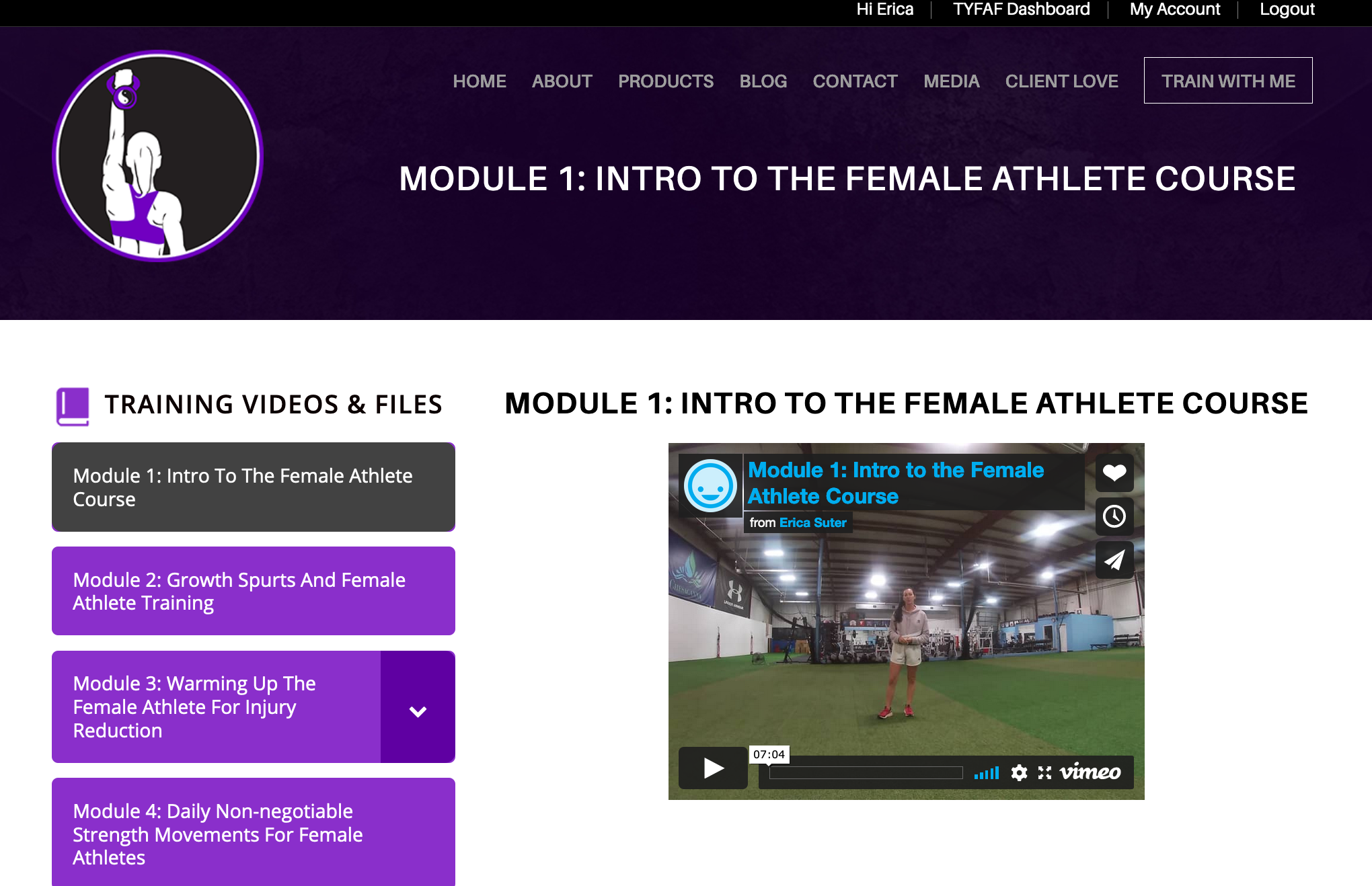
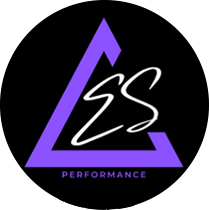

No Comments